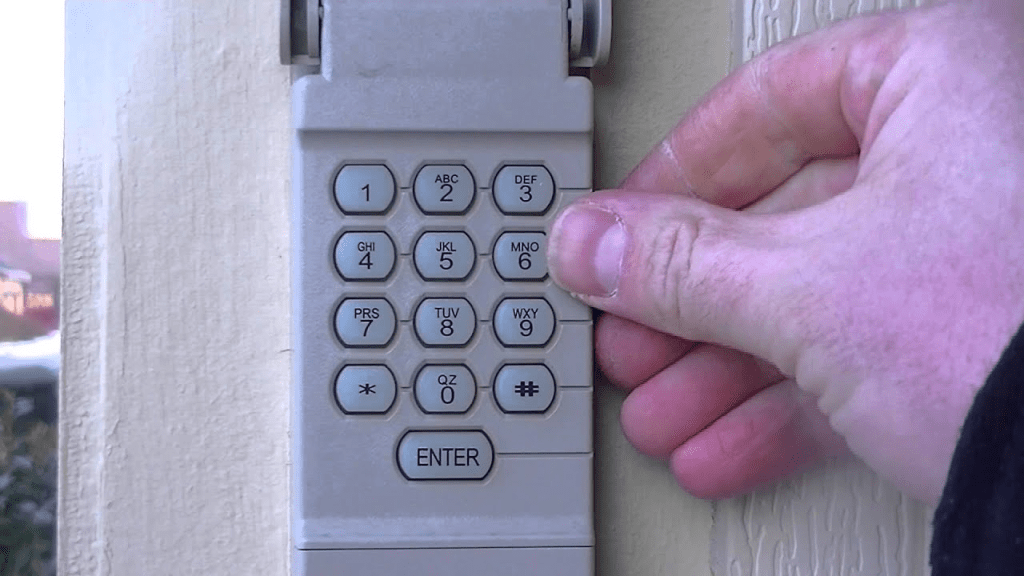If you own an old Craftsman garage door opener, you might be wondering how to change the code for better security. Over time, garage door openers can become vulnerable, especially if you’re using the original code. Whether you want to reset the code due to security concerns, a lost remote, or just for peace of mind, changing the code on an old Craftsman garage door opener is a simple process.

In this guide, we’ll walk you through how to change the code on an old Craftsman garage door opener step by step. We’ll also cover troubleshooting tips in case you run into issues.
Read too: The Complete Guide to Tighten Chain On Garage Door Opener for Smooth Operation
Why Change the Code on Your Craftsman Garage Door Opener?
Before we dive into the steps, let’s first understand why changing the code is important:
- Security Concerns – If someone else has access to your garage code, they can enter without your permission.
- Lost or Stolen Remote – If you’ve misplaced your remote or suspect it’s been stolen, changing the code prevents unauthorized access.
- Moving Into a New Home – If you recently moved into a house with an old Craftsman garage door opener, it’s best to reset the code for security reasons.
- Prevent Code Interference – Older remotes can sometimes interfere with similar devices in the neighborhood.
How To Change Code On Old Craftsman Garage Door Opener
Changing the code on an old Craftsman garage door opener depends on the model you have. Older models typically have dip switches or a Learn button to reset the code. Follow the steps below based on your model.
Method 1: Changing the Code on a Craftsman Garage Door Opener with Dip Switches
If your Craftsman garage door opener is from the 1990s or earlier, it likely uses dip switches to set the code.
Steps to Change the Code with Dip Switches:
- Locate the Dip Switches
- Find the dip switches inside the garage door opener motor unit and inside your remote control.
- Open the battery compartment of your remote and look for a row of small switches.
- Change the Dip Switch Settings
- Use a small screwdriver or pen to flip the dip switches into a new pattern.
- Make sure the new code is random and unique to prevent unauthorized access.
- Match the Remote’s Dip Switches
- After changing the dip switch pattern on the motor unit, adjust the remote’s dip switches to match the new code.
- Test the New Code
- Press the remote button to check if the garage door responds.
- If the door doesn’t open, recheck the switch positions to ensure they match exactly.
Method 2: Changing the Code on a Craftsman Garage Door Opener with a Learn Button
If your old Craftsman garage door opener has a Learn button, follow these steps:
Steps to Change the Code Using the Learn Button:
- Locate the Learn Button
- The Learn button is typically found on the back or side of the garage door opener motor unit.
- It is often colored red, yellow, green, or purple.
- Erase the Existing Code
- Press and hold the Learn button for about 6–10 seconds until the LED light turns off.
- This action clears all old codes from the system.
- Reprogram a New Code
- Press the Learn button once (do not hold it this time).
- Within 30 seconds, press the button on your garage door remote control.
- The opener’s LED light will flash, confirming that the new code is set.
- Test the New Code
- Press the remote button to ensure the garage door opens and closes properly.
How to Change the Keypad Code on an Old Craftsman Garage Door Opener
If you have a Craftsman wireless keypad, you can also change its code separately.
Steps to Change the Keypad Code:
- Find the Learn Button on the Motor Unit
- Press and release the Learn button on the opener.
- Enter a New Code on the Keypad
- Within 30 seconds, enter a new 4-digit code on the keypad.
- Press the Enter button to confirm.
- Wait for Confirmation
- If the motor’s light blinks or you hear a click, the new code is successfully saved.
- Test the Keypad Code
- Enter the new code on the keypad and press Enter to see if the door opens.
Troubleshooting Tips If Your New Code Doesn’t Work
If you’ve followed the steps but your Craftsman garage door opener isn’t responding, try these troubleshooting tips:
1. Check the Batteries
- Weak batteries in your remote or keypad can cause signal failure.
- Replace the remote control battery with a fresh one and try again.
2. Ensure the Dip Switches Match
- If you’re using a dip switch model, double-check that the remote and motor unit have the same settings.
3. Reprogram the Remote
- If the opener isn’t responding, reset the Learn button and try reprogramming the remote again.
4. Inspect the Antenna
- Make sure the antenna on the motor unit is hanging down and isn’t damaged.
5. Check for Signal Interference
- Other wireless devices (e.g., baby monitors, Wi-Fi routers) can sometimes interfere with the signal.
- Move such devices away from the garage opener if possible.
Final Thoughts
Changing the code on an old Craftsman garage door opener is essential for home security, especially if you’ve recently moved into a new home or lost a remote. Whether your opener uses dip switches or a Learn button, the process is straightforward and takes only a few minutes.
By following this guide, you can ensure that your garage remains secure while preventing unauthorized access. If you run into issues, refer to the troubleshooting tips or consider consulting a Craftsman garage door specialist for assistance.



Leave a Reply